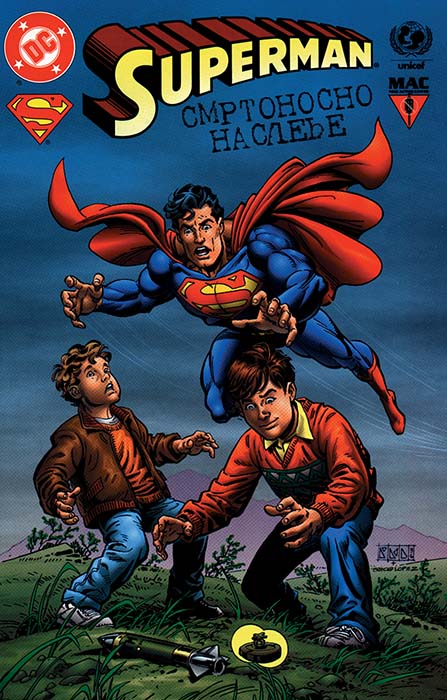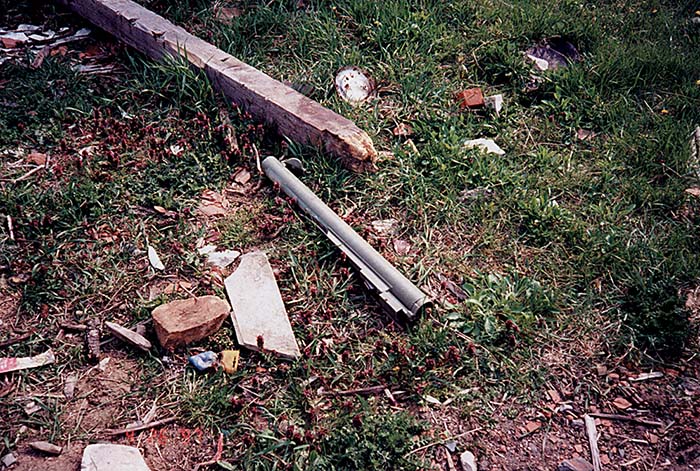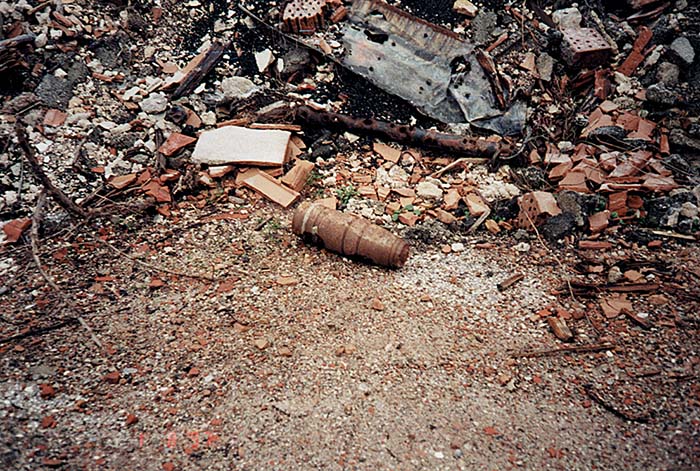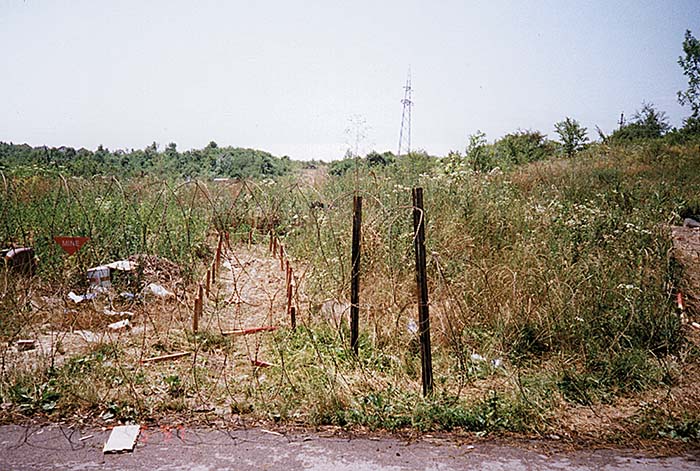By MAJ William R. Bishop, USAR, Special Forces
(For Love of a Bosnian Child)
It was a another cold night on January 15th , 1997, in Sarajevo, Bosnia-Herzegovina. The snow had been blowing for several days and now the temperatures were plunging into the mid-teens. The short daylight hours had quickly changed to an overcast black night as my soldiers from the 361st Civil Affairs Brigade were winding down another duty day. We were US Army Reservists from Arkansas, Texas, Oklahoma and Florida who had been activated by President Clinton on November 15th for a nine month tour in Bosnia. Arriving in the war torn country on December 2nd as part of Operation Joint Endeavor, we had to quickly learn all the in’s and out’s of soldiering in a complicated international environment of 33 separate nations. Even though Civil Affairs soldiers are trained in managing the intricate relationship between military and civilian components, some of us would have no idea how complicated it could get – or how fulfilling it would be.
Until a fax page was brought in, and a boy whom we had never met suddenly started the process of getting his life back together.
It was 6:00pm and my J3 Operations section was shutting down our computers and preparing to leave when a message was delivered. Since the weather was getting worse and we had to hurry up and get to the mess hall at Zetra Stadium, my Operations Sergeant, MSG Pate, took a quick glance at it. After a few moments he motioned for me to stay and the others could leave.
He asked me to sit down and read the fax. I looked it over for a minute and could not tell if it was even intended for us. A cover page was missing which could provide many of the details we needed in order to respond. Apparently, a humanitarian agency we had never heard of was requesting a military medical evacuation flight for some child and a parent. We already knew from our short time in Bosnia these were extremely difficult to obtain for both operational and liability reasons. One thing was sure, the military organization who received this mission was guaranteed a very hard time in carrying it out. The bureaucracy to overcome in obtaining the aircraft would probably be insurmountable.
After further discussion, MSG Pate and I agreed that our Task Force Surgeon, LTC Canale needed to research this further. If we were the ones to receive this mission all our facts must be absolutely straight in order to take on the military regulations.
With this, we both left the darkened office and quietly walked out into the frigid night, not knowing what to think.
The next morning, LTC Canale called the single phone number on the message and began validation of the case. The number rang to the Sarajevo office of an Italian humanitarian organization named INTERSOS. The attending physician on this case was a Dr. Kahn. The story he related was heartbreaking.
In June 1996, an 14-year old boy named Tihomir Ostojic was playing with some friends in the Dobrinja suburb of Sarajevo when he climbed down from a cherry tree. In the moment before his feet touched the ground, he knew something was terribly wrong. The grass had been undisturbed by pedestrians for a reason – it was a live minefield. A Yugoslavian land mine immediately exploded and blew him into the sky. Violently thrown forward, he landed on a second mine which also detonated. Each carried enough high explosives to severely maim or kill whoever had the great misfortune to discover them. Tihomir was the unfortunate finder.
The blasts literally ripped off both hands just above the wrists, broke a leg, severed two toes and severely bruised his entire body. Near death, he was rushed to a local Sarajevo hospital which managed, through emergency medical care honed by years of war, to staunch the bleeding and keep the boy’s life from fading away. After surviving almost four years of war, his days as a young teenager were now permanently altered.
Dr. Kahn continued his story to LTC Canale. As the boy’s overall condition became stabilized his case came to the attention of INTERSOS. Primarily composed of medical professionals who specialized in treating civilians maimed in the hellish Bosnian war, Tihomir was identified as an excellent candidate for prosthetics. Now, it was time to start the fitting process and get him to Italy for the work to be performed. However, there was one major problem – transportation to Italy.
INTERSOS, like most all humanitarian agencies, never has enough money to do everything it wants. The hard choice to make is allocation of funds. Do they place a large portion of their scarce resources in transporting the patients to Italy for treatment or maximize the medical component and hope other organizations will assist with transport? In Tihomirs’ case the choice was particularly difficult. There were no commercial transport flights out of Bosnia – anywhere – as the two available airfields only handled military traffic. Road transport would be too difficult for his wounds and was tenuous at best. Illegal checkpoints, poor freedom of movement, ethnic hatred and a lack of trafficable roads in the winter all were against him.
INTERSOS decided to hope for the good graces of the NATO-led peace stabilization forces (called SFOR). Only SFOR had the aircraft to fly Tihomir out. It was now the 361st Civil Affairs Brigade’s mission and the burden was on our shoulders. We were in the hot seat to overcome a truly amazing mass of regulations.
The next day, January 17th, MSG Pate began researching how to acquire a military aircraft seat for a Bosnian child. By pure chance, laying on an empty desk we found a detailed memorandum from SFOR headquarters on who was authorized to fly their aircraft. Buried in the middle of eighteen separate categories were two which – in a real stretch of the imagination – might apply. It was the only chance. He gave me the memo and I sat down at my desk to write an official justification. I knew if the memo was not perfect the seat for Tihomir and a parent would never materialize. There was only one chance to get it right. The next day, January 18th, we faxed it along with the standard passenger reservation request to SFOR Air Booking. This is the unit which controls aircraft seat assignment in all of Bosnia. We crossed our fingers and hoped it would slip past them to reserve two seats on the January 21st flight from Sarajevo to Rimini, Italy.
The waiting game now began.
Air Booking procedures said we could not confirm a reserved seat until 6pm the night before takeoff. If we called any earlier it might bring too much attention to the request and result in a probable refusal. The waiting was very stressful. Tihomir and his parent, Dr. Kahn, MSG Pate and I were all quite concerned.
Finally, at 6pm on the 20th, MSG Pate called and calmly inquired about the two reserved seats. We were turned down. Air Booking said the child and his father were simply not authorized to fly on SFOR aircraft. They understood this was a humanitarian request, and wished they could do something, but their interpretation of the regulations was quite clear. No.
Improvise, Overcome and Adapt
MSG Pate and I were depressed. After discussing who would call Dr. Kahn with the bad news we had one more idea: jump over Air Booking and directly call their boss, the Joint Movement Control Center (JMCC) at Zagreb, Croatia. Perhaps a direct appeal could help the case as there were no other options available.
Quickly calling the JMCC representative, MSG Pate was told they had never received any request for Tihomir or his parent! Upon hearing this we rolled our eyes and immediately re-faxed the entire request package to them. A few minutes later JMCC called us back and confirmed receipt, however, due to the late hour they could not assure any seats until 10am the next day. Time was now getting short.
We knew the chances of Tihomir and his parent getting a seat were slim. Furthermore, to get their hopes up and have them pack their bags, only to be disappointed the next day shortly before takeoff, would be too much. MSG Pate and I discussed the entire situation and agreed to request a one day delay in the flight until the 22nd. Hopefully, this would give us the time to re-do the process and get confirmed seats. I called Dr. Kahn and told him the flight would be delayed for one day. I did not tell him this whole event was on the verge of failing and we had only one more chance tomorrow. MSG Pate and I felt that something positive would happen. We did not know what, though.
After waiting all day, at 6pm on the 21st we called back to JMCC for their final decision. We got it! Tihomir and his parent were now confirmed on Flight 140Z, leaving Sarajevo at 1:30pm the next afternoon. MSG Pate excitedly called Dr. Kahn and gave him the great news. Dr. Kahn was very happy and in turn called Tihomir and his parent. They were now finally leaving Bosnia on a military aircraft for Italy and the dreamed-for prosthetic fitting. It appeared that sheer persistence had finally paid off – almost.
The weather report for the next three days was not encouraging. Freezing rain was moving in and SFOR aircraft were very reluctant to fly in this condition after the death of Secretary of Commerce Ron Brown a year earlier. Furthermore, if the aircraft was canceled the seats for Tihomir and his parent would not be automatically re-booked. We would have to start the process all over again and this time there would be a lot of unwanted attention on the case. None of us needed this attention so close to the end.
The next day, January 22nd, another one of my Operations section members, SSG Markert, and I drove to the Sarajevo airport. We were to meet Dr. Kahn, Tihomir and his parent, and several INTERSOS staff at the French Army checkpoint. After signing them in we were to all wait inside a cold steel aircraft hanger for several hours until the flight departed.
Arriving at the checkpoint at 11:00am we quickly linked up with Dr. Kahn and Tihomir. The father was also there and was escorting his son to Italy. A cold rain was starting to come down and fog was moving in so completely that nearby Mount Igman was disappearing into the haze. It did not look promising and everyone knew it. Although there was happiness at getting this far in the process, we all realized the chances for departure were rapidly decreasing with every minute of delay. Also, SSG Markert and I privately understood that delay meant a very real chance Tihomir would never get out of Bosnia. His re-booking would be highly scrutinized by numerous SFOR personnel. He absolutely had to get out today; we did not reveal our fears to anyone.
After standing in line at the French checkpoint for several minutes, Dr. Kahn and I finally got to the soldier checking the authorizations. As I started to speak a very well dressed gentleman pushed his way up to the window and cut in line. He was the German ambassador and was late in picking up someone at the airport. Elbowing and pushing me away, he showed his paperwork and insisted on rapid admittance. The French soldier looked at me and shook his head in amusement. After beating this many odds to get Tihomir out, I had little desire to start an incident with a gentleman who had forgotten his manners. We stepped aside and let the Ambassador through without further word. If he had known what we were trying to do then perhaps his graces would have been remembered!
Getting through the checkpoint we all went to the passenger check-in desk located in the hanger. Reporting to the French sergeant that Tihomir Ostojic and his father were now here, I was greeted with a real shock. They were not on the approved manifest! JMCC had apparently not forwarded their names to the French and we were now in deep trouble. The flight was also overbooked as American embassy personnel were on standby. There were no seats available and the best we could get was standby status. Looking over at Tihomir and his father, I was sick to my stomach. How was I going to break this terrible news to them? We had come this far only to falter at the end.
Getting firm, I asked the French sergeant to please check again as there was very definitely a mistake. She told me in a combination of French-German-English that no mistake was made. If the names were not on the manifest there would be no seats available. She was sorry, but those are the rules. Hearing this, I reached through the window and took the manifest to check it for myself. Perhaps there was a misspelling or mispronunciation which caused the error.
As I quickly brought it through the window a flash of yellow paper fluttering in the air caught my eyes. Grabbing it as it drifted down, I glanced at some writing on one side. The names of Tihomir Ostojic and his father were there. JMCC had made a late addition to Flight 140Z’s manifest and the French had added this change with a post-it note. What a break! Eagerly showing this note to the French sergeant, she broadly smiled and inked their names in as having reserved seats. We were ready to go!
Except the weather was now collapsing badly and the flight might be cancelled.
We all nervously waited in the cold and drafty hanger for the next two hours in the hope the aircraft would be able to take off. The weather continued to get worse. Finally, at 1:00pm the announcement was made to begin loading the passenger’s baggage into the nearby cart. Maybe there was some hope after all. I took Tihomir and his father’s two simple suitcases into the hanger next door and placed them onto the wooden packing form. It quickly filled up with luggage and some French soldiers threw a cargo net over it and efficiently ratcheted it down. A motorized cart then drew up, a forklift placed the heavy weight onto the cart, and it disappeared towards the darkened runway.
Finally, the announcement we had anxiously waited for arrived. All confirmed passengers were to step outside to the ground guide and walk to the awaiting C130 aircraft. Tihomir was a slightly built boy trying as best as possible to look calm. He self consciously kept his arms inside his jacket pockets and stayed near his father. All our hearts went out to him at a time like this. He had never been on an airplane, outside the country of Bosnia, or near so many soldiers in his short life. Now, he was almost ready to take off on a military cargo plane, into bad weather, to a foreign country and be fitted for advanced prosthetic devices.
To give him some increase in confidence, I pulled out my good luck piece which was with me for many years – my 11th Special Forces Group coin – and placed it in his jacket pocket. Through my interpreter Danka, I told him that it had been with me on many parachute jumps and it would be with him now. He should fear nothing. Looking up, he thanked me with a nervous smile and wished the best for all of us who had helped him
With a final hug from everyone, and a shaking of the father’s outstretched hand, Tihomir and his parent joined the line behind the French guide and quickly disappeared into the fog towards the dark shape of a C130 aircraft. Hopefully, he was on his way to the start of a new chance in life. If they could take off.
SSG Markert and I said our goodbyes to Dr. Kahn and the INTERSOS staff and then slowly walked to our parked vehicles. Still unsure whether there would be any more problems with the flight – or even if the weather would allow a takeoff – SSG Markert and I stood beside our Hummer vehicle and watched the runway. Nothing could be seen or heard for twenty minutes. We were now quite worried as most all aircraft leaving Sarajevo tend to take off rapidly in order to clear the runway for the next plane. The darkness, rain and fog were now built up so much that one could not see nearby Mount Igman. This was a sure sign that we had lost the race. If Igman is not visible then local airsafety regulations would prohibit the flight. After all this, Tihomir and his father would not be leaving.
Suddenly, with a muffled roar of engines washing over our bodies, the totally blacked out shape of an American C130 cargo plane came flashing over the hanger in front of us. SSG Markert and I stood there and craned our necks as we tracked its single visible tailight into the gloom. We were ecstatic, as the pilots had obviously gotten out under absolutely minimum standards. Shaking each others hands, we got back into the Hummer and drove through the fog and rain back to Sarajevo. Tihomir had finally won.
TWO WEEKS LATER….
The phone rang and MSG Pate answered it. After a short conversation he hung up and smiled. Standing up, he announced to the J3 section that Dr. Kahn of INTERSOS had just called. Tihomir Ostojic and his father were returning in a few hours and we were invited to the airport to welcome him back. His prosthetic work had been very successful and there was an excellent prognosis for the future. Looking at each other, MSG Pate and I knew right then that we would be there. We wouldn’t miss if for anything.
Two hours later, we were standing at the airport entrance gate and eagerly awaiting for Tihomir and his father. Without any fanfare, they appeared with the other passengers getting off the flight from Italy. When Tihomir spotted our group he broke out in a smile which could illuminate the world. Walking up to him, I gave the traditional Bosnian welcome by kissing him on both sides of his face. Through an interpreter he thanked me for the good luck coin which I have given him shortly before departure. It had obviously worked for him!
After a few minutes of greetings, we all started to walk back to our parked vehicles. As we turned towards our Hummer, Tihomir’s father walked up with the INTERSOS interpreter to say a few private words. What he said was most heartfelt.
It turned out the Ostojic family was Serbian! The Serbs in Bosnia do not look kindly on American soldiers as we are viewed as their enemies who forced an unfair Dayton Peace Accords on them. For the American military to now do so much in support of his son was simply astounding. He had a totally changed opinion about us and the United States of America.
“Bless you and your soldiers – thank you America!” was all he could say through a huge smile. Shaking his hand, MSG Pate and I grinned and told him that we would have done the same thing for anybody. We meant it – and he knew it. And that made all the difference.




| This article first appeared in Small Arms Review V1N5 (February 1998) |











